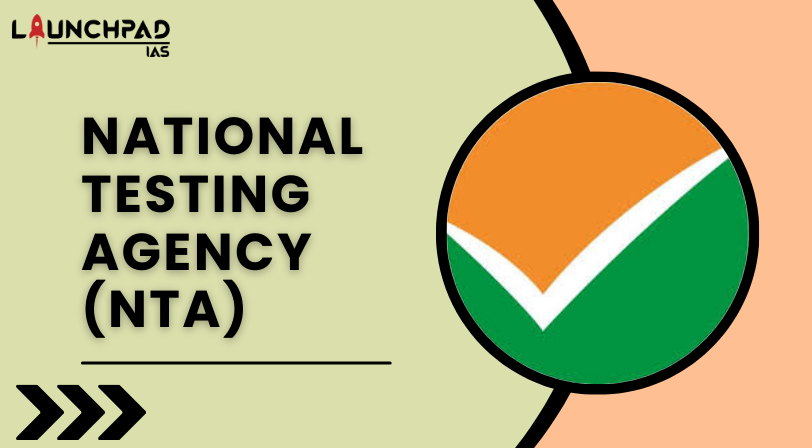- The National Testing Agency (NTA) was established as a Society registered under the Indian Societies Registration Act, of 1860.
- It is an autonomous and self-sustained testing organization to conducts entrance examinations for admission/fellowship in higher educational institutions.
Goal
To conduct efficient, transparent, and international standards tests in order to assess the competency of candidates for admission and recruitment purposes.
Structure & Composition of National Testing Agency
The National Testing Agency (NTA) is a self-sustained autonomous body. It operates under the Ministry of Education, Government of India. It is governed by a Governing Body, which is responsible for the overall policy and direction of the NTA. The Governing Body is chaired by the Secretary, Department of Higher Education, Ministry of Education.
The following are the key positions in the Team NTA:
- Director General
- Executive Directors
- Joint Directors
- Deputy Directors
- Assistant Directors
- Senior Technical Assistants
- Technical Assistants
- Administrative Officers
- Other supporting staff
List of Exams conducted by the National Testing Agency
The list of exams conducted by the National Testing Agency are:
- Joint Entrance Exam (JEE)
- JNUEE
- National Council for Hotel Management Joint Entrance Examination (NCHM JEE)
- NTA NEET (National Eligibility cum Entrance Test)
- CMAT (Common Management Admission Test)
- Graduate Pharmacy Aptitude Test (GPAT)
- All India AYUSH Post Graduate Entrance Test (AIAPGET)
- IGNOU PHD OPENMAT (MBA) Exam
- ICAR AIEEA Exam
- Uttar Pradesh Combined Entrance Test (UPCET)
- NIS Patiala Exam
- BBAU Entrance Exam
- Delhi University Entrance Test (DUET )
- BHU Entrance Exam
- Common University Entrance Test (CUET UG)
- Common University Entrance Test (CUET PG)
- Joint Integrated Programme in Management Admission Test (JIPMAT)
Functions of the National Testing Agency
- To identify partner institutions with adequate infrastructure from the existing schools and higher education institutions that would facilitate the conduct of online examinations without adversely impacting their academic routine.
- To create a question bank for all subjects using modern techniques.
- To establish a strong R&D culture as well as a pool of experts in different aspects of testing.
- To provide training and advisory services to institutions in India.
- To collaborate with international organizations like ETS (Educational Testing Services).
- To undertake any other examination that is entrusted to it by the Ministries/Departments of Government of India/State Governments.
- To undertake the reforms and training of school boards as well as other bodies where the testing standards should be comparable with the entrance examinations.
Governance
- NTA is chaired by an eminent educationist appointed by the Ministry of Human Resource Development.
- The Chief Executive Officer (CEO) will be the Director-General to be appointed by the Government.
- There will be a Board of Governors comprising members from user institutions.
Significance
- The establishment of a specialized testing body like NTA has relieved the agencies such as CBSE, and AICTE of their responsibilities of conducting Entrance examinations.
- Examinations are conducted by NTA in the online mode at least twice a year, to give enough opportunities to candidates and to bring out the best in them.
- To increase the accessibility and meet the requirements of the rural students, it will locate centers at the sub-district and district levels.
- National Testing Agency (NTA) has launched a ‘mobile app’ and Test Practice Centres (TPCs) through which students can practice or take mock tests on their computers or smartphones.


